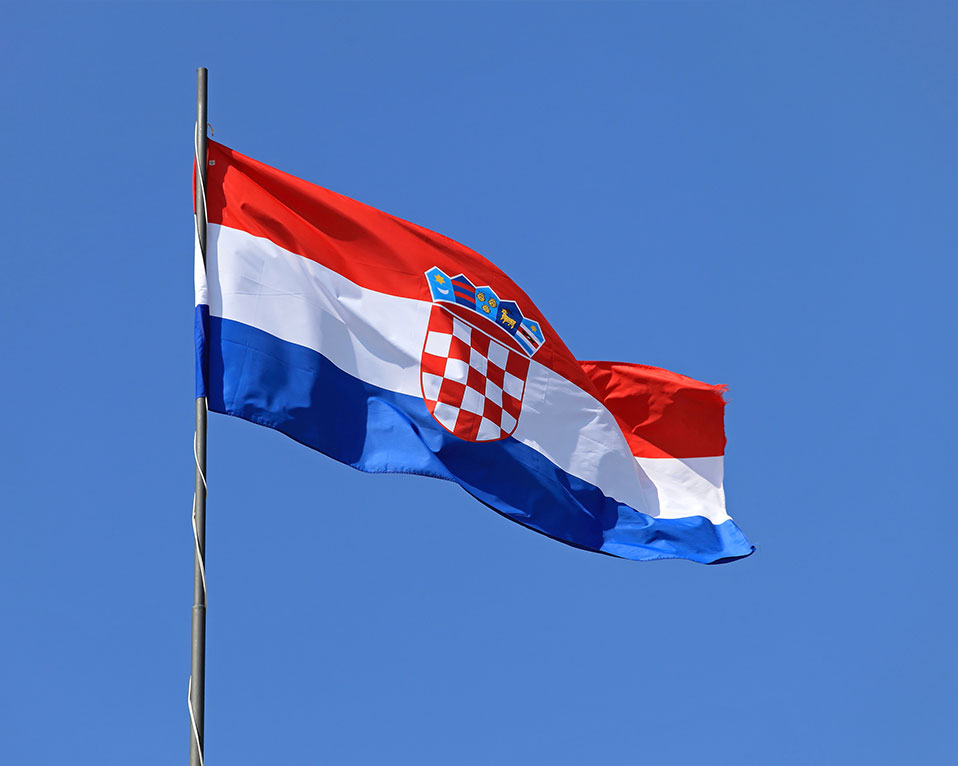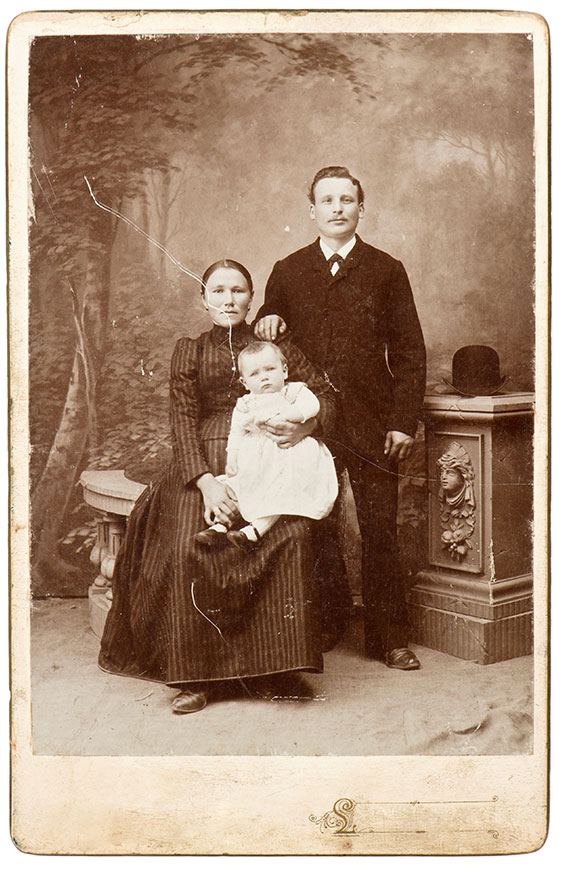Croatian Citizenship By Descent
APPLYING FOR CROATIA CITIZENSHIP BY DESCENT
Getting Croatian Citizenship by Descent Through Ancestors
Having ancestors who are from Croatia is one of the most popular ways you can qualify for Croatian citizenship yourself. It’s something called Croatian citizenship by descent.
Of course, Croatian nationality law has requirements that you must meet to qualify. However, if you meet the qualifications and possess the necessary documentation, this process for apply for Croatia citizenship by descent is possible. The greatest advantage? It connects you with your Croatian roots while offering you the numerous benefits of becoming a Croatian citizen.
Croatian citizenship by descent is also one of the least expensive ways to get citizenship in an EU member country. That will open you up to an enormous number of benefits in and of itself.
The guide below will walk you through everything you need to know about the process for applying for Croatian dual citizenship by descent. If you are not sure if you qualify, we are offering free consultation calls with our experts to help set you in the right direction.

Croatian Citizenship by Descent at a Glance
| Topic | Details |
|---|---|
| Eligibility | ● Must have a Croatian ancestor (parent, grandparent, or great-grandparent) who emigrated before October 8, 1991 ● Proof of lineage and emigration required ● No generational limit if documentation is available ● Spouses of eligible applicants can also apply |
| Disqualifications | ● Ancestor moved to another Yugoslav republic ● Ancestor emigrated after October 8, 1991 ● Ancestor returned to Croatia after emigrating ● Applicant is a Croatian emigrant who moved to another Yugoslav state or returned to Croatia |
| Required Documents | ● Birth certificates (applicant and ancestors) ● Application form ● Proof of citizenship (domovnica, passport, ID) ● Background check (less than 6 months old) ● Proof of ancestor's emigration (e.g., ship manifest, entry records) ● Translations and apostilles required |
| Application Process | 1. Confirm eligibility and gather documents 2. Submit in person at the nearest MUP station (in Croatia) or Croatian consulate/embassy (abroad) 3. Wait for a decision (may take 2+ years) |
| Processing Time | Applications can take 2 years or more |
What Is Croatia Dual Citizenship by Descent?
In Croatia, this path to citizenship is called stjecanje hrvatskog državljanstva prirođenjem (prirođenje for short).
It is all made possible by Article 11 of the Croatian Citizenship Act, which states that you qualify for citizenship if you have a direct ancestor who left the country before independence in 1991 without renouncing their citizenship. That ancestor can not have left on the “basis of an international agreement,” moved to a state that was also a part of Yugoslavia at the time.
You can also get citizenship this way if your spouse is applying for citizenship through Article 11. Note: if you are married to a Croatian and want to become a Croatian dual citizen yourself, check out our full guide here to apply for Croatian citizenship through marriage.
Who Qualifies for Croatia Citizenship by Descent?
To qualify for Croatian citizenship by descent, you must have a Croatian ancestor connected to you in a direct line (parent, grandparent, or great-grandparent) who permanently left Croatia to live abroad. The ancestor must be considered a Croatian emigrant under the law.
Key points about eligibility:
- There is no limit to how many generations you can go back as long as you can prove the connection and their emigration abroad (thanks to a rule that went into effect in January 2020)
- The ancestor must have left Croatia before October 8, 1991
- If you are a Croatian born on Croatian territory who permanently moved abroad before 1991, you may also qualify
- Spouses of those who qualify or have obtained citizenship based on descent can also apply without meeting residence or language requirements
Important Disqualifications for Croatian Nationality by Descent
You may be disqualified from applying for Croatia citizenship by descent if:
- Your ancestor left Croatia to move to another country within Yugoslavia (or ex-Yugoslavia)
- Your ancestor left Croatia after October 8, 1991
- Your ancestor returned to live in Croatia
- You are a Croatian emigrant who moved to another country within Yugoslavia
- You are a Croatian emigrant who left Croatia after October 8, 1991
- You returned to live in Croatia as a Croatian emigrant
How to Apply for Croatian Citizenship by Descent
1. Confirm Your Eligibility
Before starting the application process, it’s crucial to confirm your eligibility by obtaining your or your Croatian ancestor’s birth certificate. This document is essential for the application process.
2. Required Documentation
You must provide the following documents meeting the current Croatian government requirements:
- Filled out application form (Obrazac 1, 2, or 3, it all depends on your situation)
- Outline your biography (this needs to includes the reasons you want to become a citizen, and it has to be written in Croatian)
- Birth certificate
- Birth certificate of your Croatian ancestor
- Birth certificates of relatives connecting you to this ancestor (if you are relying on a grandparent or great-grandparent)
- Notarized proof of citizenship (passport, ID card, or domovnica equivalent)
- Background check from your home country (not older than 6 months)
- Copy of identity document with photo
- Marriage certificate (if applicable)
- Family tree
- Proof of ancestor’s emigration (ship manifest, entry records, death certificate, etc.)
- Proof of current address
- For children under 18: Written consent from both parents
All documents from foreign governments must be:
- Original documents
- Apostilled or legalized
- Officially translated into Croatian (unless covered by bilateral agreements)
Still confused about documentation? Check out our full guide to documentation for getting Croatian citizenship here.
3. Submission Process
Applications must be submitted in person:
- If you have legal residence here in Croatia: Submit at the nearest MUP administrative police station
- If you are applying abroad: Submit at the nearest Croatian consulate or embassy
Are you disabled and unable to submit in person? You can have a legal representative or authorized proxy submit for you.
4. Processing Time and Decision
Croatia has especially long wait times. Many Croatian dual citizenship applications take as long as 2 years or more, and that can become longer when applying abroad.
If your application does get approved, you’ll receive a “Rješenje o primitku u hrvatsko državljanstvo” (Decision on admission to Croatian citizenship). Your citizenship begins the day you receive this decision—making it a joyous moment in many households.
But what happens if your Croatian dual citizenship application is denied? You have 30 days to submit a complaint (tužba) to the administrative court.

After Obtaining Croatian Nationality
Once citizenship is granted and you have Croatian nationality, you can apply for additional Croatian documents in this order:
- Domovnica (proof of citizenship)
- Rodni list (birth certificate)
- Putovnica (passport)
- Osobna iskaznica (ID card)
How to Get Croatian Citizenship by Descent
If you have the documentation to prove your parent, grandparent, or great-grandparent were Croatian citizens, then this could be the best route for you.
But if you look over the guide above and find that this isn’t a great fit, don’t worry. You still have other options. Check out our full guide on how to get Croatian citizenship. There, you’ll find the different routes available, so you can start on your journey as soon as possible.
Because of the sometime arduous task of fully documenting your case for citizenship by descent, CDC has put together special services just for you. We work with thousands of people looking to become dual citizens through ancestry—and we’d be happy to take a look at your case.
With our 100% free consultation call, you can speak with an expert to determine whether you have a good claim and what your next steps should be.
Frequently Asked Questions:
Can I get Croatian citizenship by descent?
Yes, as long as you have a Croatian parent, grandparent, or great-grandparent who left Croatia before October 8, 1991. That’s going to require a chain of documentation that proves your lineage. But it also saves you from many requirements that other routes require. For instance, you won’t have a language requirement—which many people struggle with.
Another bonus? If you qualify, your spouse can apply for Croatian citizenship along with you.
What is Croatian proof of citizenship?
A domovnica is the primary proof of Croatian citizenship, and you can only get one after your application is approved. This is a powerful document that opens up the door to a Croatian passport and ID card. Other valid proofs include a Croatian passport, ID card, or military ID.
Can a USA citizen obtain Croatian citizenship by descent?
Yes – an American is free to become a Croatian citizen through their ancestry. And because both countries allow for dual citizenship, you don’t have to give up your current connection to the USA.
Are there citizenship by descent countries that use great-grandparents?
Many countries allow citizenship by descent through a great-grandparent—but the amount of documentation you need increases each generation you go back. That’s because you have to establish connections between each generation (through birth certificates and proof of citizenship).
Luckily, Croatia does allow citizenship Croatian by descent through your great-grandparent.
Can I get Croatian citizenship if my grandfather was Croatian?
Possibly. If you can prove he was Croatian and his connection to you, then it’s worth trying. However, you’ll need to make sure he left Croatia before October 8, 1991, and that he didn’t move to another Yugoslav republic. Unlike some other European countries, your parent will not need to become a Croatian citizen before you can qualify.
This page was last updated with help by Marco Permunian
Contact Us
There are many ways to qualify for Croatian citizenship by descent. Contact us at (213) 636-8110 to learn if you qualify to apply.
